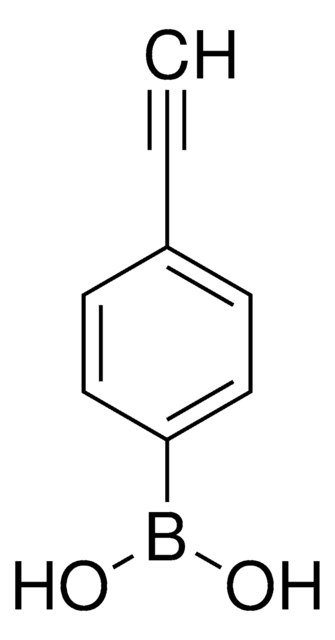417580
4-Vinylphenylboronic acid
≥95%
Synonym(s):
(4-Ethenylphenyl)boronic acid, (p-Vinylphenyl)boronic acid, 4-Styrylboronic acid, 4-Vinylbenzeneboronic acid, p-Vinylbenzeneboronic acid
About This Item
Recommended Products
Assay
≥95%
form
powder
mp
190-193 °C (lit.)
SMILES string
OB(O)c1ccc(C=C)cc1
InChI
1S/C8H9BO2/c1-2-7-3-5-8(6-4-7)9(10)11/h2-6,10-11H,1H2
InChI key
QWMJEUJXWVZSAG-UHFFFAOYSA-N
Related Categories
Application
Signal Word
Warning
Hazard Statements
Precautionary Statements
Hazard Classifications
Acute Tox. 4 Oral
Storage Class Code
11 - Combustible Solids
WGK
WGK 3
Flash Point(F)
Not applicable
Flash Point(C)
Not applicable
Personal Protective Equipment
Certificates of Analysis (COA)
Search for Certificates of Analysis (COA) by entering the products Lot/Batch Number. Lot and Batch Numbers can be found on a product’s label following the words ‘Lot’ or ‘Batch’.
Already Own This Product?
Find documentation for the products that you have recently purchased in the Document Library.
Customers Also Viewed
Our team of scientists has experience in all areas of research including Life Science, Material Science, Chemical Synthesis, Chromatography, Analytical and many others.
Contact Technical Service














